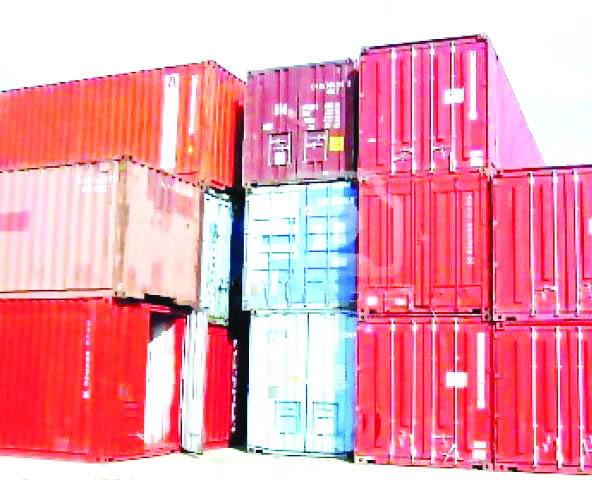In Nigeria, it is a privilege to have access to a toilet. This lack is glaring both in the urban centres and the hinterland, though the rural areas are the worst hit. But Lagos seems to appreciate the situation more than other states. It recently issued a directive to landlords in the state to provide multiple toilets and “good septic tanks” on their premises or face prosecution. It decried the widespread practice of tenement (multi-room) houses sharing only one toilet, with tenants queuing to use a toilet. This is a sensible directive, which no one can disagree with.
Although the Lagos government is talking tough, a major problem in Nigeria is the gap that exists between a government directive and its enforcement. “The idea of tenants queuing before they can use the toilet will no longer be tolerated,” an official said. “Just imagine a 25-room apartment with over 10 people living in each of the rooms. How can they cope with one toilet?” It is distressing, yet, this is the reality many Lagos residents contend with.
But Lagos State cannot be commended just yet for moving against the lack of toilets in multi-room houses. This is partly because of its laxity in enforcing its own rules, granting residential building permits with no concrete follow-up on the provision of toilets. Apart from residential houses, public facilities like petrol stations are guilty of this. To curb the menace, the Lagos State House of Assembly, in 2012, drew up a guideline for petrol stations in the state to erect toilets. The move has floundered because enforcement has been half-hearted.
Another factor for poor sanitation is that in facilities that do have toilets, there is no water. Recently, water supply dried up in several parts of Lagos, making it difficult for residents to observe basic sanitation and hygiene practices, which are essential to good health. Lagos State should not put the cart before the horse. It should ensure adequate supply of water before censuring house owners.
However, the issue is a national concern. The consequence is that Nigerians despoil the environment by defecating and urinating openly. Many desperate travellers stop by the roadside, while some city dwellers wait till nightfall to answer the call of nature in the open. The drainage smells of foul urine and excreta across the country. The United Nations estimates that 2.4 billion people in the world, including many Nigerians, have no access to toilets or latrines. One billion people defecate in the open.
The problem manifests itself in several ways. Many higher institutions of learning lack water for basic hygiene. Their toilets are repulsive and dirty. Students are thus forced to make do with “flying toilets (shot put),” that is, excrete in nylon bags and throw them into their immediate surrounding – the bush or the road. Many students – and other distressed Nigerians – go without taking their bath. This is demeaning, more so for women, who are exposed to snake bites, abuse and rape because their privacy is breached by open defecation.
Worse, even public hospitals are affected, with their toilets locked up, perhaps because there is no running water. In some other places, the public are asked to pay before they could use toilets. As a sign of how bad the situation is, the Akwa Ibom State Government last week expressed shock that 907 students of the state’s School of Health Technology, Etinan, had only three toilets. It must fulfil its pledge to remedy the situation.
Earlier this year, UNICEF reported that 50 million out of Nigeria’s 170 million population defecated openly. In its 2015 World Toilet Day report, WaterAid, a British non-profit organisation, rated Nigeria third out of 10 countries in the world with the longest queues for toilets, and sixth in the world with the most people practising open defecation. “Nigeria, sub-Saharan Africa’s largest economy, is in the unfortunate position of being the third most regressive country in the world on sanitation,” the WaterAid report stated, with the country only behind Djibouti and Georgia.
The impact is shattering, as poor sanitation has a direct correlation with infections, malnutrition, stunted growth, diseases and death. Each day, estimates the World Toilet Organisation, a Singapore-based global non-profit body, 1,000 children die from preventable water and sanitation-related diarrhoeal diseases. UNICEF states that 150,000 Nigerian children die annually from diarrhoea, a disease associated with poor hygiene. We need to improve the health of our people by making sanitation facilities easily available and accessible across the landscape.
Every year, Nigeria loses hundreds of its people to cholera, with 500 deaths recorded in 2015. The disease is rampant among rural dwellers because they defecate openly. Their drinking water is polluted by excreta. Faeces contain millions of pathogens that imperil the health of the people, who also have no access to medical care. According to the UN, 1.8 billion people globally use a source of water contaminated by faeces.
This should provoke government at every tier into a coordinated, enduring and practical action-plan to provide sanitation facilities. Access to toilet is a human right, and is the UN Sustainable Development Goal Six, which was adopted in 2013 by several countries. It does not cost a fortune to build toilets, so, the government does not have any excuse not to enforce it. Indeed, it takes innovation, as a pilot project on solar toilets in San Francisco, a United States city, has shown. The project, in which a solar-powered toilet recycles water and breaks down waste into reusable energy, was funded by the Bill and Melinda Gates Foundation, and is being tested in China and India; some other US cities are about to adopt it. Nigeria, with abundant solar energy, should follow suit.
To reverse this unwholesome trend, every local government area in the country should set a firm annual target of building a certain number of functional toilets in its domain. In the same vein, state governments and the Federal Government should commit to similar annual projects, where targets set are met. Through this means, more toilets will be made progressively available to the populace and diseases reduced.
















































